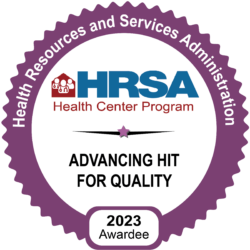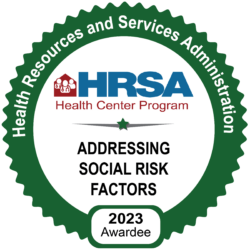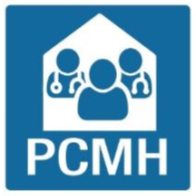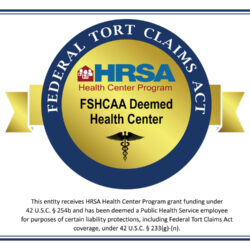The first day of school is usually a normal day for students, filled with eager excitement and anxious anticipation.
For Elizabeth Eckford, her first day of school on Sept. 4, 1957, was anything but normal. She made history as a member of the Little Rock Nine, the nine black students who desegregated Little Rock Central High School.
A chilling photograph of Eckford, then a 15-year-old teenager, walking alone through a screaming mob of angry white protesters in front of Central High School, propelled the crisis into the nation’s living rooms, an enduring image of the civil rights movement.
Eckford visited Pensacola last week as part of the Equity Project Alliance in partnership with the Delta Iota Omega Chapter of Alpha Kappa Alpha Sorority, Inc. and the Diocese of the Central Gulf Coast.
Before a speaking engagement at Pensacola State College on Oct. 6, Eckford stopped by Community Health Northwest Florida to share her story and learn more about the services a Federally Qualified Health Center provides.
With Eckford were Eurydice and Grace Stanley, the mother-daughter Pensacola duo that collaborated with Eckford on a book, “The WORST First day: Bullied While Desegregating Central High” in 2017.
The book highlights Eckford’s painful experiences and their aftermath, as well as provides encouragement for victims of bullying, intimidation and discrimination.
“For those who wonder why I share my story now, the reason is simple … I feel as though I must,” Eckford says in the book’s Foreword. “People are being harassed in toxic environments at school and work. I sincerely hope by sharing my story, I can make them start recognizing the impact of their behavior.”
While talking with some staff at Community Health, Eckford expressed awe of the agency’s facilities and the array of health and wellness services offered.
Eckford praised the needed services that the more than 1,400 Federally Qualified Health Centers provide to millions of underserved, underinsured and uninsured patients nationwide.
An irony of Eckford’s visit is that her involvement in desegregating a school happened less than 10 years from the genesis of health centers in the U.S.
Less than a decade after Eckford’s unfortunate high school experience, in the midst of the civil rights movement in 1965, Dr. H. Jack Geiger and Dr. Count Gibson secured funding from President Johnson’s “War on Poverty” to support two pilot programs, creating what today is known as “community health centers.”
One in Boston, Mass, and another in Mound Bayou, Miss., these two health centers birthed the 1,400 heath centers that exist today, including Community Health Northwest Florida.
In Mississippi, Dr. Geiger ventured to a mostly African-American town made up of sharecroppers who were living in abject poverty and where children were dying from malnutrition.
He and some nurses went there to not only bring access to healthcare, but also to go into the homes and provide education and support to the community. What ensued was a movement in which the community banded together to support healthcare and address social and health disparities.
The civil rights movement was accomplished by ordinary people in the local communities who took chances to make a difference.
Elizabeth Eckford and Drs. Jack Geiger and Count Gibson became champions of civil rights and racial progress, helping to improve the quality of life in our communities through their courage, passion and vision for a better world.



